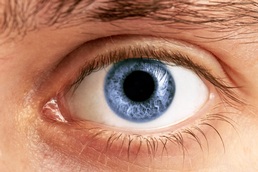Vital support is lacking during serious cases of sight loss
Almost half of eye hospitals in the UK do not offer support to people who are going blind, according to research by the Royal National Institute of Blind People (RNIB).
The charity are looking to highlight the multiple barriers adults face during a time of great stress, as well as drawing attention to the lack of funding for existing sight loss advisor roles. Many current professionals have no guaranteed funding of their services after April 2015, which is unlikely to improve on the current alarming statistics.
Additional findings include that 23 per cent of eye-health patients leave hospital not knowing what condition they have and that only one in ten of people who are losing their sight are successful in sourcing counselling.
RNIB’s chief executive, Lesley-Anne Alexander, comments: “Every 15 minutes someone in the UK starts to lose their sight but people do not always get even basic emotional and practical support at this critical time. Being told you are losing your sight can be extremely traumatic to come to terms with, and everyone reacts differently.
“No one should have to face the prospect alone or without the support they need to help them through the situation. This is why at RNIB we will be focusing our efforts on making sure more people are reached when they need us.”
Launching a new five-year strategy this month, the RNIB wants to see eye health services transformed so that once a diagnosis is made individuals, their families and friends, receive the practical and emotional support they need and deserve.

Liz Wick, 51, from Sheffield, shares her own insight into sight loss, saying: “It changes your life when you’re told ‘you’re going blind and we may not be able to do anything for you’. When I was first diagnosed I’d just separated from my husband, my son was 14 and I didn’t know what the future held for me. I had lots of worrying thoughts. ‘Could I be a mother? Could I be a worker? Could I still be a friend to people?’ I couldn't cry at home so I used to get into work, shut the door and cry for about an hour to get it out of my system.
“With hindsight, you think, ‘Why didn’t you ask more questions about your treatment or about talking to someone?’ but all I can say is I just didn’t. I suppose I was in shock. To have had someone there, ready for when I wanted it all explained to me, would have been amazing.”
Latest News
 29-Jul-24
Dementia Bus gives carehome.co.uk staff insight into life with dementia
29-Jul-24
Dementia Bus gives carehome.co.uk staff insight into life with dementia
 01-Mar-24
Find out the top care homes in 2024
01-Mar-24
Find out the top care homes in 2024
 21-Mar-23
UK's top care homes in 2023 revealed
21-Mar-23
UK's top care homes in 2023 revealed
 03-Jan-23
carehome.co.uk launches free care helpline
03-Jan-23
carehome.co.uk launches free care helpline
 13-Dec-22
5 mins with Emily Whitehurst, chief operating officer for Constantia Healthcare
13-Dec-22
5 mins with Emily Whitehurst, chief operating officer for Constantia Healthcare